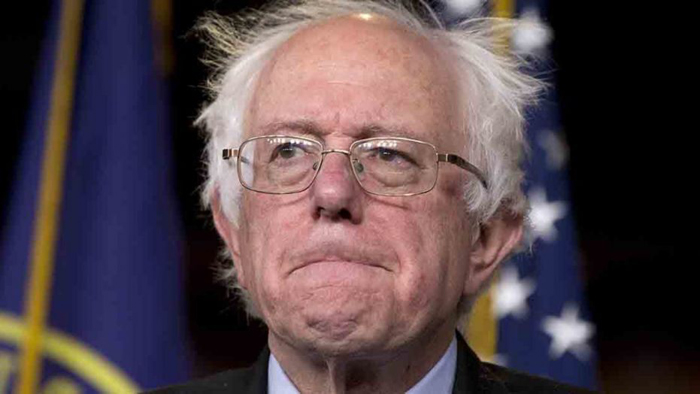By Sally Pipes | Fox News
Self-described socialist Sen. Bernie Sanders of Vermont, who says he will launch a political revolution if elected president in November, has made his radical “Medicare-for-all” proposal the centerpiece of his campaign.
Former Vice President Joe Biden, who is challenging Sanders for the Democratic presidential nomination, argues correctly that “Medicare-for-all” is unaffordable.
Biden wants you to think he’s a moderate who favors a much less costly plan that would build on ObamaCare. But the former vice president’s plan still features its fair share of tax increases that would hamstring our economy and take a bite out of the average family’s wallet.
BETSY MCCAUGHEY: SANDERS GETS IT WRONG ON ‘MEDICARE-FOR-ALL’
In truth, Biden and Sanders are both calling for the same thing – a government takeover of health insurance. They just differ on how to deliver that outcome.
Once one of these men wins the Democratic nomination to run against President Trump, the president will call attention to the fatal flaws in his opponent’s plans. As a result, that could mean that health care will become a losing issue for Democrats, unlike in the 2018 midterm elections.
The coronavirus was on voters’ minds as they headed to the polls on Super Tuesday. Over half of voters in five states, including California and Texas, said the illness caused by the virus was an important factor shaping their vote, according to exit polls.
Likely because of their fears about the virus, voters in every Super Tuesday state listed health care as their most important issue. But they appeared to trust Biden’s pitch for incremental reform more than Sanders’ promise to burn down the status quo.
Nearly 40 percent of voters who said health care was their top issue voted for Biden, while just 30 percent of those voters went to Sanders.
And yet, “Medicare-for-all” remains popular with voters. Exit polls from Super Tuesday found that half of all voters supported replacing private health insurance with a government-run system. Around 70 percent of voters in Maine and Vermont supported this plan.
This public support for “Medicare-for-all” might be a function of their fuzziness on how it would work. Some 47 percent of Americans erroneously think they’d be able to keep their employer-sponsored insurance under “Medicare-for-all.”
Nearly six in 10 Americans say they oppose “Medicare-for-all” if it leads to the elimination of private insurance – which it most certainly does.
“Medicare-for-all” may play well in the Democratic primaries. But it will be disastrous in a general election.
Sanders’ “Medicare-for-all” plan will require back-breaking tax hikes that will pick the pockets of every American to cover its $46 trillion cost over 10 years. By way of comparison, President Trump has proposed a budget of $4.829 trillion for the entire federal government in the 2021 fiscal year.
Evidence from single-payer systems abroad indicates that all the gigantic tax increases needed to pay for “Medicare-for-all” would simply buy us all places on waiting lists for health care.
Biden promises to preserve private insurance and create a public option as a means of stoking competition in the insurance market. That may seem like a safer political bet for Democrats who need the votes of suburban moderates to retake the White House.
But the public option is just single-payer in slow motion. It envisions paying doctors and hospitals rates similar to Medicare’s, which are about 40 percent less than those for private insurance.
Private insurers don’t have the power to dictate what they’ll pay providers. Consequently, the public option will have a much lower cost structure – and will thus be able to set premiums that are far lower than those for private insurers.
Consumers are sure to flock to the cheaper public plan. Health care providers will respond by raising their rates for private insurers, who will have to pass those cost increases along to their customers in the form of higher premiums. That will drive still more people to the public option. The cycle would repeat, until the public option was the only insurance option left.
Just two years ago, Democrats chalked their victories in the 2018 midterm elections up to their promise to protect ObamaCare. Now they’re going to run on a plan for health care reform that results in the end of private insurance.
That’s unlikely to play well at the polls in November, when there are more than Democratic primary voters casting their ballots.
Sally C. Pipes is President, CEO, and Thomas W. Smith Fellow in Health Care Policy at the Pacific Research Institute. Her latest book is False Premise, False Promise: The Disastrous Reality of Medicare for All (Encounter 2020).






